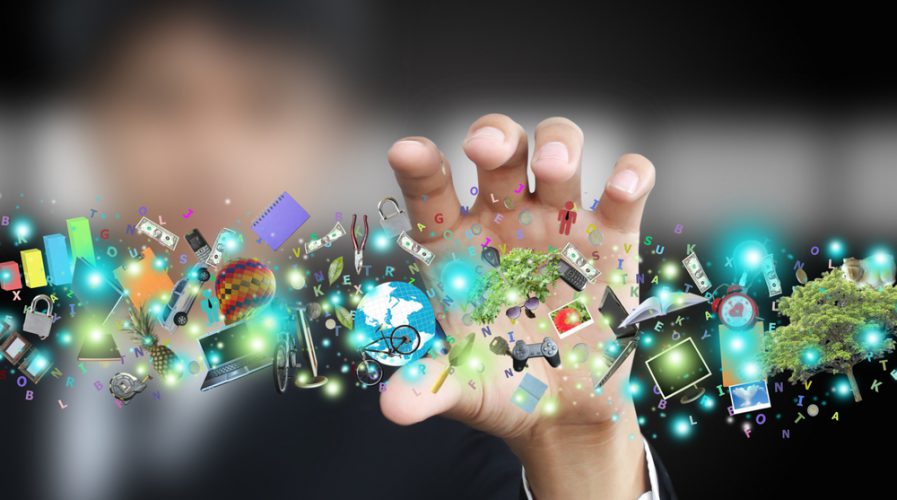
2017 could be a year of breakthrough technological advances and development. Pic: chanpipat/Shutterstock
Tech breakthroughs to look forward to in 2017
2016 HAS been a year of many technological shake ups – from the arrival of self-driving technology to new developments and acquisitions in the virtual reality and smart home space. As we’re now a few days into the new year, we’ve compiled a list of predictions and forecasts from the likes of Deloitte, Inc.com and Forbes of the technological breakthroughs likely to be seen in 2017.
Rise of exponential technologies
“Exponential” technologies, such as robotics, virtual and augmented reality, 3D printing and artificial intelligence have been thoroughly researched and tested over the past few years. 2017 should welcome advanced breakthroughs in these areas.
✨?Best wishes from @NaoRobot, Romeo robot, @PepperTheRobot and from all SoftBank Robotics Europe team for this New Year 2017! #HNY2017 ?✨ pic.twitter.com/1zidmybVgT
— SoftBank Robotics EU (@SBREurope) December 30, 2016
Cognitive technologies in daily life
Cognitive technologies, such as machine learning, natural language processing, speech and pattern recognition, have already been a part of our daily mobile lives (think Siri and other translation apps). In 2017, this technology will be embedded further into software applications by leveraging Big Data.
The Top Emerging #Technologies: 2017 To 2021 by @forrester #IoT #AI #FinTech #AR #VR #BigDatahttps://t.co/MX8iGrx9h1 pic.twitter.com/wv1PaBFSkT
— David J. Maireles (@davidjmaireles) January 1, 2017
Digital currency tech goes mainstream
Blockchain, which is the base for digital currency Bitcoin, has up until this point been considered mysterious to mainstream users. 2017 should see more Blockchain use not only within the financial services industry, but in any enterprise that manages transactional data.
IoT and smart home technology consolidation
The IoT and smart home tech revolution has been slow to arrive, despite it being years in the making due to too much competition. Now that Google, Amazon and Apple have all launched smart home hubs for interconnected homes, 2017 should see more solutions that tie into a sole, seamless user experience.
SEE ALSO: Japan: Gatebox’s smart virtual reality ‘companion’ receives mixed responses
All services, on demand or bust
After the proliferation of ride-hailing apps such as Uber or service-booking super apps like WeChat, users expect to be able to order a service with the push of a button and have it delivered quickly. 2017 will see these expectations extend to all other service-based industries, beyond the scope of just beauty, F&B and transport services.
Mobile commerce will take over
Now that the average shopper is educated in the ways of online shopping, mobile as the primary platform for commerce will be the next step. The next generations of online shoppers are only getting younger and more smartphone-savvy, not to mention largely from the developing world where many have completely skipped the PC age.
#Mobile commerce is taking off. Number of #UK mobile shoppers aged 14+ expected to reach 40.1 mil in 2017 https://t.co/xkjkvXgUMr @eMarketer pic.twitter.com/t9pjR501Kv
— Magento (@magento) December 22, 2016
READ MORE
- Ethical AI: The renewed importance of safeguarding data and customer privacy in Generative AI applications
- How Japan balances AI-driven opportunities with cybersecurity needs
- Deploying SASE: Benchmarking your approach
- Insurance everywhere all at once: the digital transformation of the APAC insurance industry
- Google parent Alphabet eyes HubSpot: A potential acquisition shaping the future of CRM
